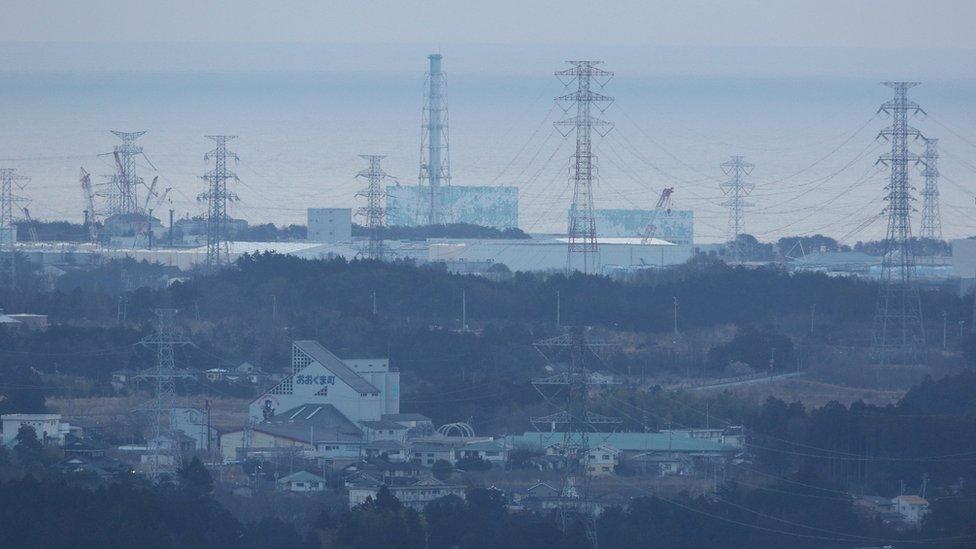Fukushima farmers grow plants with polyester 'soil'
- Published

Farmers are struggling with the legacy of the 2011 Fukushima nuclear plant disaster
Farmers in Japan's Fukushima prefecture are using polyester "soil" to grow plants, in the hope of restoring consumer confidence in their produce following the 2011 nuclear disaster.
A trial run in the Ojima district has seen 2,000 ornamental anthurium plants grown using thin polyester fibres in the place of soil, the . The district is about about 50km (30 miles) inland from the Fukushima Daiichi plant, which suffered a series of meltdowns after the massive earthquake and subsequent tsunami five years ago.
While local produce has passed safety tests, consumer nervousness about radiation has hit farmers hard, the paper says. It's a problem that has been felt - Japan's third largest - even when produce has been grown miles away from contaminated areas.
"By using polyester fabrics as a cultivation medium instead of ground soil, this new method will help protect Fukushima farmers from harmful rumours that may stem from consumers' concerns over soil contamination," says Prof Takahiro Hayashi from Kinki University, which is helping to run the project.
Local farmers are hoping to expand production and plan to set up an agricultural corporation later this year. One of them, 76-year-old Yukichi Takahashi, wants the flowers to be seen by a global audience. "My dream is that our flowers will be used in bouquets to be presented to athletes on the podium during the 2020 Tokyo Olympics," he says.
Next story: New Zealand contractors unearth giant bird bones
Use #NewsfromElsewhere to stay up-to-date with our reports via .